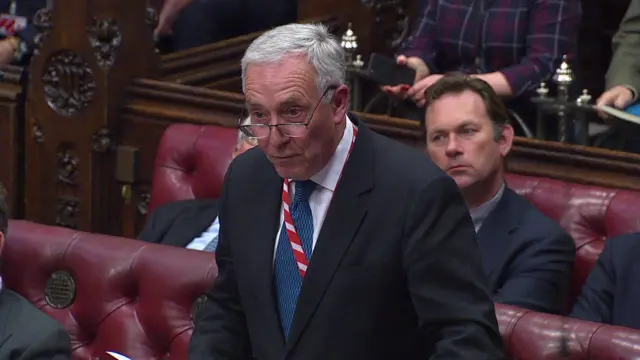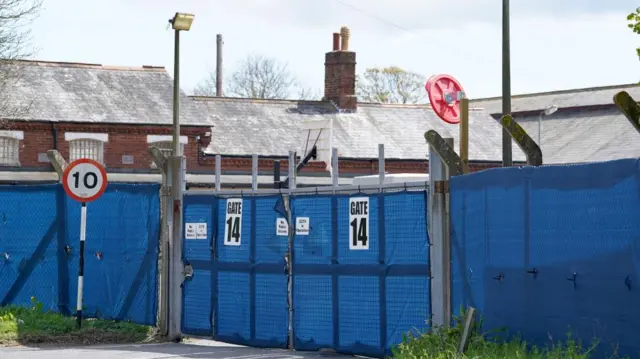Lord Browne probes at apparent government concessionpublished at 19:47 BST 22 April 2024
Labour peer Lord Browne of Ladyton strongly criticises Sunak and the government.
He begins by asking what defines courage. He says: "Is it a desperate and unpopular prime minister threatening to keep some septuagenarians up all night if we do not bow to his will?
"Or is it putting yourself or your family in mortal peril by fighting totalitarianism alongside British forces with no idea of how that struggle will end?"
He says what we've heard in the last few minutes from the Conservative benches this evening might represent a concession.
Lord Browne is referring to the government saying there will be a reassessment of all eligibility decisions under the Afghan relocation scheme, which was set up for people at risk of Taliban reprisals because of their association with UK forces.
He asks Lord Sharpe to repeat that portion of his statement - which he did not refer to as a concession - so peers can take a view on whether they feel the government's position has moved enough for them to support it.
He isn't saying at this stage whether he accepts that possible concession.





